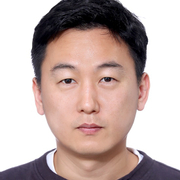- Level Expert
- Duration 11 hours
- Course by Korea Advanced Institute of Science and Technology(KAIST)
-
Offered by

About
The course provides an introduction to quantum information at a beginning graduate level. It focuses on the fundamental understanding of how information is processed with quantum systems and how the quantum properties apply to computing and communication tasks. The course begins by presenting quantum theory as the framework of information processing. Quantum systems are introduced with single and two qubits. Axioms of quantum theory such as states, dynamics, and measurements are explained as preparation, evolution, and readout of qubits. Quantum computing and quantum communication are explained. Entanglement is identified as a key resource of quantum information processing. Manipulation and quantification of entangled states are provided. Quantum information processing opens an avenue to new information technologies beyond the current limitations but, more importantly, provides an approach to understanding information processing at the most fundamental level. What is desired is to find how Nature performs information processing with the quantum and classical systems. The ultimate power of Nature in computing and communication may be found and understood. The course provides a modest step to learn quantum information about how physical systems can be manipulated by the laws of quantum mechanics, how powerful they are in practical applications, and how the fundamental results make quantum advantages.Modules
Week 1
1
Assignment
- Week 1 Review Quiz
6
Videos
- 1. Background
- 2. Simple quantum experiment
- 3. Axioms of quantum theory
- 4. Qubit experiment
- 5. State transformations VS Probabilities (qubit) 1
- 6. State transformations VS Probabilities (qubit) 2
Week 2
1
Assignment
- Week 2 Review Quiz
5
Videos
- 1. Mixed state
- 2. Bloch sphere
- 3. Qubit dynamics
- 4. Quantum state discrimination
- 5. No-go theorems
Week 3
1
Assignment
- Week 3 Review Quiz
5
Videos
- 1. Two-qubit entanglement
- 2. Two-qubit gates
- 3. Two-qubit measurements
- 4. Quantum teleportation 1 : one-time pad
- 5. Quantum teleportation 2
Week 4
1
Assignment
- Week 4 Review Quiz
5
Videos
- 1. Quantum computing
- 2. The Deutsch Problem 1 : the phase kickback
- 3. The Deutsch algorithm 2 : the original
- 4. The Deutsch algorithm 3 : channel discrimination
- 5. Phase estimation
Week 5
1
Assignment
- Week 5 Review Quiz
5
Videos
- 1. Quantum channel by Kraus representation
- 2. Quantum channel as quantum teleportation
- 3. Quantum channel as CPTP maps
- 4. Qubit channels
- 5. Quantum channels are special
Week 6
1
Assignment
- Week 6 Review Quiz
6
Videos
- 1. Entangled states are useful
- 2. Single-copy entanglement manipulation
- 3. Entanglement manipulation 1
- 4. Entanglement manipulation 2
- 5. Multipartite entangled states
- 6. Mixed state entanglement
Summary
1
Videos
- Closing & beyond
Final exam
1
Assignment
- Final exam
Auto Summary
"Introduction to Quantum Information" is an expert-level course designed for those interested in delving into the realm of quantum information processing within the fields of mathematics and statistics. This course, offered by Coursera, aims to provide a foundational understanding of how quantum systems process information and the implications for computing and communication. The curriculum starts with an introduction to quantum theory, focusing on single and two qubit systems. It covers the axioms of quantum mechanics, including states, dynamics, and measurements, essential for understanding qubit preparation, evolution, and readout. The course also explores pivotal concepts such as quantum computing, quantum communication, and the significant role of entanglement in quantum information processing. Learners will gain insights into manipulating and quantifying entangled states, thus recognizing entanglement as a crucial resource. The course emphasizes the potential of quantum information processing to transcend current technological limitations and offers a pathway to understanding how nature processes information at the most fundamental level. With a duration of 660 hours, this course is ideal for seasoned learners looking to expand their knowledge in quantum mechanics and its practical applications. The "Starter" subscription option provides access to this comprehensive learning experience, guiding students through the complexities of quantum systems and their profound capabilities in modern technology.

Joonwoo Bae

